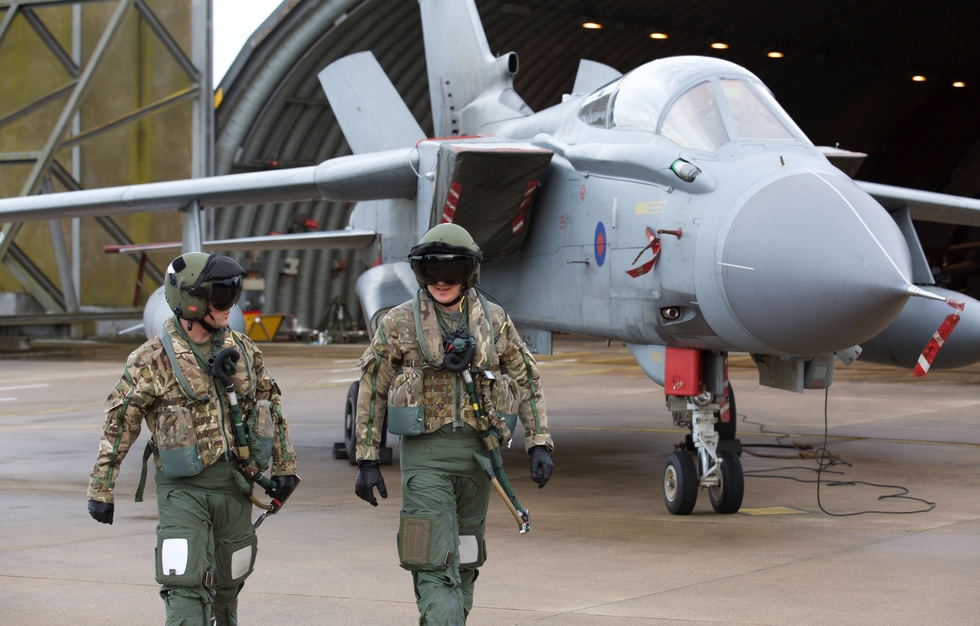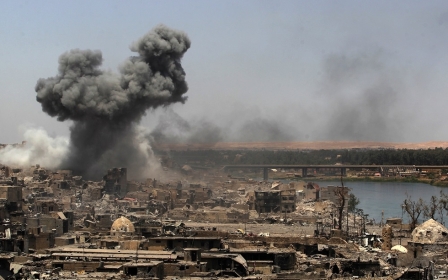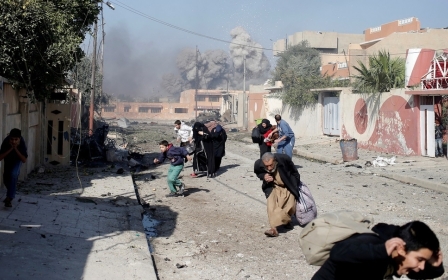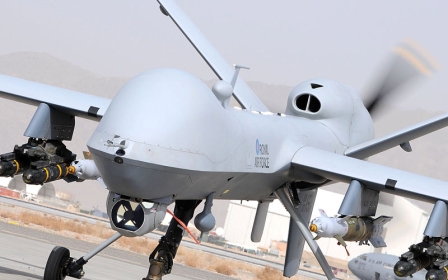UK parliament launches inquiry into RAF strikes on Mosul and Raqqa

LONDON - Royal Air Force strikes against Islamic State group (IS) fighters in Mosul and Raqqa will be the subject of a full-scale inquiry by a cross-party committee, it has been announced.
The inquiry by the powerful defence committee will examine RAF operations over Mosul and Raqqa, dubbed "Operation Shader", including the effectiveness of measures used to avoid civilian casualties.
The parliamentary inquiry on lessons learned comes after the British government admitted for the first time the operation had caused a civilian death.
Defence secretary Gavin Williamson said last week the civilian was "unintentionally" killed when the RAF fired on an IS target in Syria earlier this year.
'The risk of inadvertent civilian casualties'
The RAF is the second-largest provider of air power in the US-led coalition against IS in Syria and Iraq, and has been credited with helping to push back the militant group, which seized vast swathes of territory in 2014 and imposed a so-called "caliphate" notorious for its brutality, including mass killings, abductions and beheadings.
The Ministry of Defence had long maintained, in the face of scepticism from campaigners and monitoring groups, that there was “no evidence” that more than 1,600 RAF drone and fast jet strikes since 2014 had caused harm to civilians, and that it was the "ruthless and inhuman behaviour" of IS fighters and their use of human shields that created the "risk of inadvertent civilian casualties".
The new inquiry by the defence select committee has been welcomed by rights groups. It comes six months after Middle East Eye revealed that the UK had dropped more than 3,400 bombs and missiles on IS targets since 2014.
The committee, which includes both senior Conservative and Labour backbenchers, has a specific remit: to examine the expenditure, administration and policy of the Ministry of Defence.
“Since September 2014, the UK has been conducting military operations in Iraq, and later in Syria, against Daesh as part of an international coalition of 75 partners. The UK’s contribution, under Operation Shader, includes air operations in both countries, with the RAF having conducted over 1,700 air strikes, and the training of local forces in Iraq,” the committee said in a statement on its website.“The committee is examining the effectiveness of UK military actions in helping Iraqi and Syrian partner forces recapture Mosul and Raqqa from Daesh, particularly from UK air operations, and will address the following areas.”
Graham Jones MP, a Labour member of the committee, said: “With air strikes against Daesh coming towards an end, it’s time to reflect back on the actions taken.”
But a source close to the inquiry told MEE that civilian deaths would not be a “major focus”. Instead they would be explored within the context of the challenges of operating in cities, working with coalition allies and local forces.
Oliver Sprague, Amnesty International UK's military programme director, told MEE: “We welcome this inquiry and some much-needed public scrutiny of UK air strikes in Raqqa and Mosul.
“The inquiry offers the first opportunity of substance to probe government claims over civilian casualties.
“In contrast to MoD claims, our research points to large numbers of civilians having been killed and injured as part of this campaign, and we hope the perspectives of Iraqi and Syrian civilians themselves will be reflected in the inquiry.”
Calls for a wider inquiry
Labour shadow foreign office minister Fabian Hamilton welcomed the inquiry, but called for more focus on the “eventual aftermath of the war for civilians” in Raqqa and Mosul, as well as elsewhere in Iraq and Syria.
He told MEE: “It would be beneficial for the inquiry to look more broadly at the effects of UK air strikes on civilian life in Mosul and Raqqa. Should the inquiry find that UK military involvement in the cities has had a negative impact on civilians since operations began in 2014, then it is vital that the government learns from the recommendations set out by the committee and applies them to any future military intervention abroad.”
But Greg Bagwell, a former senior RAF commander and jet pilot, said the timing of the inquiry was “rather curious, and appears to undermine or question the RAF’s contribution to what has been a large coalition".
Bagwell, who is now a fellow at the Royal United Services Institute, said: “Why now and why so narrow?”
MEE understands that Amnesty International UK is likely to submit evidence to the inquiry, alongside a number of the drone and armed violence campaign groups.
New MEE newsletter: Jerusalem Dispatch
Sign up to get the latest insights and analysis on Israel-Palestine, alongside Turkey Unpacked and other MEE newsletters
Middle East Eye delivers independent and unrivalled coverage and analysis of the Middle East, North Africa and beyond. To learn more about republishing this content and the associated fees, please fill out this form. More about MEE can be found here.





